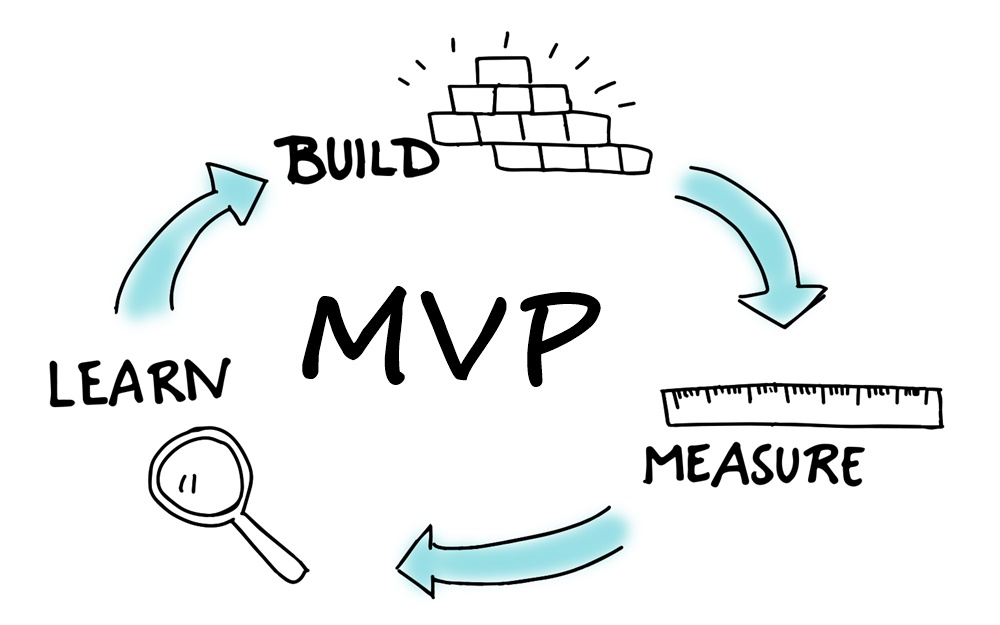Startups are celebrated because they succeed in spite of great odds. Imagine entering as a wild card candidate in a 100 metres race that has Usain Bolt no less, with both of your hands tied behind your back. Everyone, including your mother, thinks you have the chance of a snowball in hell; but this is no ordinary race and it ends with Mr Bolt looking at you in slow motion wonder, watching you pip him to the finish line by the blink of an eye.
This is daily life for a start-up: going against the Goliaths of the game or even worse, entering uncharted waters, with resources crunched but heads held high, it attempts the impossible simply by existing.
Crunched Resources
Speaking of crunched resources, nowhere does this manifest as much as it does while hiring talent. Good talent can make or break the startup, but they are usually expensive and sub-optimal given the unique conditions a startup has.
Condition #1: Tight budgets & cash-flows
Who can argue with this? Start-ups are famously cash-strapped, and that makes it difficult to hire the best full-time talent, that can be expensive. So many start-ups end up hiring interns and freshers, which is great if you can afford to invest in people and train them to the point that they start contributing, but start-ups rarely have these luxuries. Talent in a startup needs to be productive from day 0. And that kind of productivity or experience doesn’t come cheap.
Condition #2: Demand ramp-up
Anyone who has ever worked in or led a start-up knows that it takes a while to ramp up demand. Imagine you are an investment banking start-up, and while there is interest and even some business coming in, it is not enough to hire someone qualified at the back-end who can do research, modeling, creating of pitch decks, all of which can supplement your efforts at the front line, meeting and selling to potential clients. So either you pay from your own pocket, or you end up doing everything yourself. Both these scenarios are sub-optimal.
Condition #3: Need for MVPs and Pivots
By definition a start-up is innovative. It needs to keep experimenting, trying out new initiatives, entering new markets, MVPing new product features or lines, responding quickly to competition, and all of this demands an environment of agility. This needs to extend to hiring as well, and conventional modes of hiring don’t offer this agility.
Larger organisations too face these challenges
While I speak predominantly of start-ups, the situation with larger companies today is not very different. Today even large companies are facing dynamic environments led out of changing consumer habits, evolving technologies; product cycles have to be crunched, innovation has to be top-notch, all the while battling bottomline pressures; these indicate an entrepreneurial approach of experimentation, openness to failure and agility, and an unconventional approach towards hiring.
COVID19 has compounded these conditions
Covid 19 has upset the apple cart in a big way. Businesses are battling with the repercussions, but it’s going to be a hard struggle before things normalise.
New reality #1: Cash-flows have become tighter
Cash is elusive at a time like this, and interdependencies make it difficult for everyone, i.e. even those who have demand, are facing delayed payments from their clients. Any hiring is especially difficult at a time like this
New reality #2: Demand is even more uncertain
It’s a roller coaster for everyone, we just don’t know when the peaks and troughs will come. There are a few green shoots, and for some there is a visible pick up, but it is difficult to predict when it will go back to what it was pre-COVID.
New reality #3: There is a critical need for MVPs and Pivots
In sharp contrast to the first two points, which are about constraints, this one is about the opportunity. The pandemic has brought unprecedented changes with it - in our habits as consumers, in our purchasing priorities and channels, and in the ways we consume media. All businesses would do well, as many are, to reflect upon their offerings, their models and delivery mechanisms to ascertain if any changes need to be made to adapt to these new realities. This means more MVPs, more experimentation, more pivots, and to enable all of these, more agile hiring.
How Flexible Talent can help Businesses navigate these problems
Event at the best of times, growing businesses face unique constraints and conditions that make hiring through conventional models difficult, at times like these, those constraints get compounded. This is where the flexible talent ecosystem can play a role. Let us understand how it works.
Pillar #1: Skilled & Expert Talent
Today, the flexible talent ecosystem attracts people from a wide array of functions and sectors. Experts from across different industries and with various different skills want to work flexibly, with motivations ranging from the flexibility itself to variety and independence. This means a business today can find virtually any skill they need, including some very cutting edge ones, from this pool. Moreover these are experts, with minimal need for training, and can be productive very quickly.
Pillar #2: Project or Role formats
The manner of engagement with this talent pool can be as custom as your need is. It could range from a 2 week project to a 2 year long role. The common threads to these engagements is the contractual nature of it, that makes it agile and cost-effective, and the flexibility, such as part-time and remote-working, that is most often a part of the arrangement, that is beneficial for both businesses and the talent pool. For businesses, part-time models are hugely cost-effective as one gets high expertise at a fraction of the cost, and remote-working unlocks cost benefits as well as enables businesses to hire uninhibited by geographical boundaries.
Pillar #3: Pay per time needed Pricing models
While the engagements can be structured the way businesses need, the clincher is that so can the pricing models. For example, a business can hire a part-time talent for 75%, 50% or 25% of the traditional work-day and would pay them proportionate to the time hired for. Incidentally, this model delivers huge ROI for the business as more often than not, the productivity in these hours exceeds the hours itself. Similarly, projects can be structured as per hours, milestones or output, with pricing models mirroring those as well. This means that you can pay basis an agreed hourly rate and the number of hours incurred, or have performance based pricing models that pay basis milestones or output achieved. Businesses benefit from all of these.
Pillar #4: Quick hiring & short duration contracts
This aspect is crucial to the flexible talent ecosystem, bringing huge agility to businesses. Hiring, onboarding and joining can all be completed within 1-2 weeks or lesser time, given the non traditional pool it hires from. And most importantly, businesses can scale up and scale down, the latter given the short nature of the contracts and the business friendly notice periods.
These models are instrumental to creating an environment of experimentation and agility for businesses, and also enable them to keeping themselves lean during the off-periods. The off-periods could be due to seasonality, or an external situation such as funding drying up, or now Corona.
For example when Corona hit us, and some of our clients came to us to cancel the talent contracts we had with them, we decided to extend out support to them at their time of need by suspending and terminating those contracts with zero notice periods; while simultaneously ensuring the talent were also comfortable with the decision.
So these are the ways in which businesses can tackle some of their talent challenges, during Corona and beyond. They can get job-ready expert talent, via pay-per-need affordable pricing models, and in a highly agile manner that supports innovation and experimentation.
The Future of Work
The way work has been done for the last 100 years, custom designed for the industrial-age, is undergoing drastic transformations. These changes are in the space of talent models and ways of working as we spoke of in this article, but also in multiple other ways, such as what careers will look like here on, skills upgradation, learning velocity and ecosystems that will enable them, technology integrations from simple cloud and digitisation to increasingly more automation to AR & VR, and many others.
One thing is sure that what got us here will not help us unlock the next level of human productivity and inclusivity. Unfortunate though it is, the pandemic has accelerated many of these trends and led to increased adoption. For example, in the last few months nearly the whole world has executed a remote working MVP, which has by and large been successful and has led to infrastructure changes and mindset shifts. As we hear everyday, many companies globally as well as in India are moving to remote-first models, that in turn will impact sectors like telecommunications, real-estate, clean energy, wellness, etc. Similarly, changing consumer habits during this time have led to increased adoption for online models across education, entertainment, retail, payments, medicine, etc. Many of these will be positive changes, leading to an unprecedented democratization of goods and services, making them accessible and affordable to many more, if not all.
We are especially looking forward to more acceptance for different kinds of ways of working, such as flexi-time, part-time, remote-working, which will most definitely lead to innovative talent models for businesses as we discussed earlier, but also new ways of living for people. It will help people who want to work outside of the 9 to 7 traditional ecosystem, to put their talent and time to productive use, to have a chance to attain professional growth and fulfillment. It will break down geographical barriers to opportunity, distributing it far and wide via the internet superhighway, creating prosperity for individuals and communities no matter where they are. It will create more time for people to enjoy other areas of life, seek balance, and actively pursue personal fulfillment too. Let’s hope that the future of work leads the way to humanity 2.0, where we get the chance to correct many of the things we got structurally wrong the first time round. The signs look positive.
**
FlexiBees has provided companies, both startups and established players, with part-time talent for many projects and roles; across a variety of functions & skill-sets like Inside Sales, Business Development, Marketing, Digital Marketing, Public Relations, Investment Banking, Technology, Content Development, Writing, Graphic Design, etc. All these companies have benefited by being able to hire high quality talent at pricing optimised only for the hours of work they need. With the COVID-19 pandemic leading to businesses trying new approaches, strategies, MVPs, etc, part-time and project-based talent, that are high-quality and affordable, can help.
If you have a role requirement, take 2 minutes to fill our form and we will try our best to fulfil it for you, quickly and to your satisfaction.














